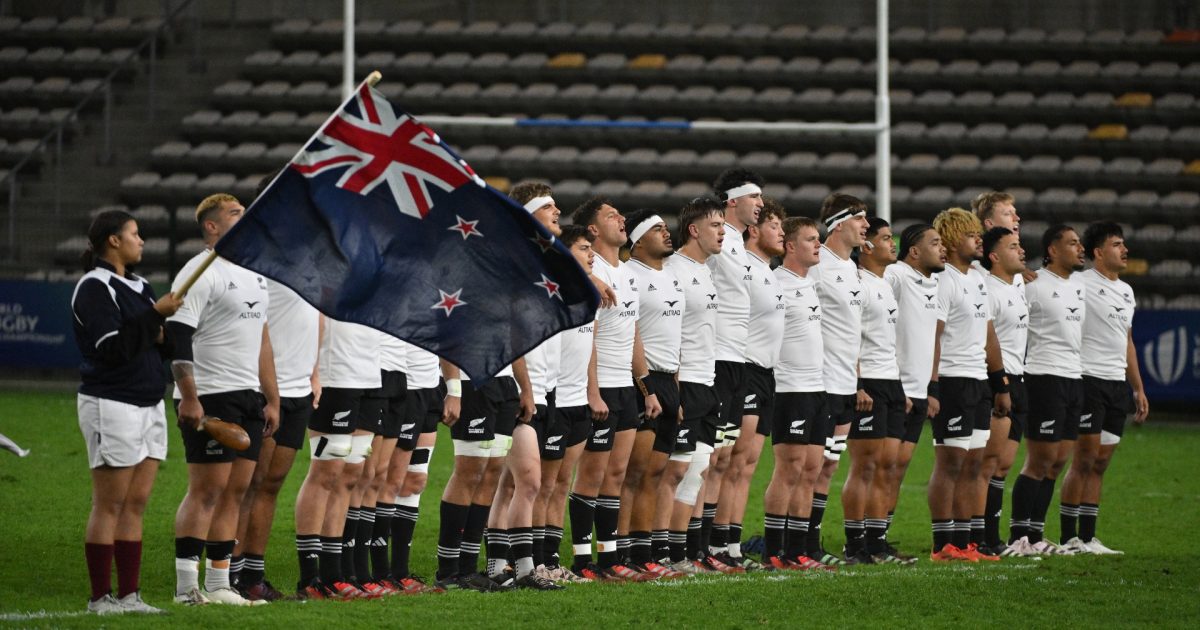
U20 : cinq changements pour les Baby Blacks face à la France

Le sélectionneur néo-zélandais Jono Gibbes a convoqué une équipe des Baby Blacks avec cinq changements par rapport à la première journée du Championnat du Monde U20 en Afrique du Sud pour affronter la France jeudi 4 juillet.
Les Néo-Zélandais ont bien lancé leur tournoi en remportant leur premier match de la poule A contre le Pays de Galles avec un score de 41-34 à l’Athlone Stadium. Pour le choc tant attendu contre les Français, ils ont procédé à trois changements parmi les avants et deux parmi les arrières.
C’est lors de la deuxième journée du tournoi de l’année dernière que la France avait pris son envol, battant largement la Nouvelle-Zélande 35-14 à Paarl. Les Bleuets avaient ensuite remporté le titre, leur troisième consécutif chez les moins de 20 ans, tandis que les Baby Blacks, dirigés alors par Clark Laidlaw pour la classe de 2023, avaient terminé en bas du classement, à la septième place.
C’est donc dans un esprit un brin revanchard que se présenteront les champions du Rugby Championship pour tenter de faire oublier la défaite passée.
Jono Gibbes a décidé de titulariser Logan Watson-Wallace au poste de pilier droit, tandis que Joshua Smith a été relégué sur le banc des remplaçants.
En troisième-ligne, Andrew Smith et Mosese Bason ont été choisis pour débuter respectivement au côté fermé et au numéro 8, Tai Cribb manquant à l’appel et Matt Lowe prenant place sur le banc.
À l’arrière, les deux changements apportés au quinze de départ concernent le triangle arrière avec Isaac Hutchinson à l’arrière à la place de Sam Coles, laissé sur le banc, tandis que Xavier Tito-Harris, remplaçant contre les Gallois, prend la place de Frank Vaenuku sur l’aile droite.
L’équipe de la Nouvelle-Zélande contre la France jeudi 4 juillet :
- Will Martin
- Vernon Bason (capitaine)
- Logan Watson-Wallace
- Tom Allen
- Liam Jack
- Andrew Smith
- Jonathan Lee
- Mosese Bason
- Dylan Pledger
- Rico Simpson
- Stanley Solomon
- Xavi Taele
- Aki Tuivailala
- Xavier Tito-Harris
- Isaac Hutchinson
Remplaçants :
- Manumaua Letiu
- Sika Uamaki
- Joshua Smith
- Cameron Christie
- Matt Lowe
- Ben O’Donovan
- Sam Coles
- King Maxwell.
Cet article publié à l’origine en anglais sur RugbyPass.com a été adapté par Willy Billiard.















































